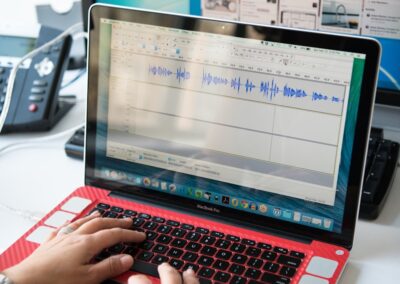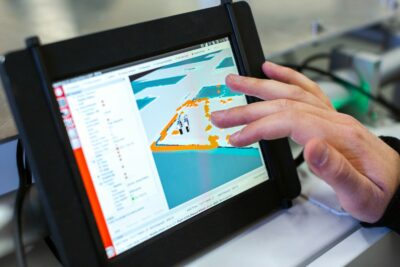Revolutionizing Education with Adaptive Learning Tools
Enhancing Personalized Learning Through AI
The future trends in adaptive learning tools promise to transform the educational landscape significantly, offering more personalized and effective learning experiences for students. In the UAE and Saudi Arabia, where education is a critical pillar of national development, the integration of adaptive learning technologies is already underway, aiming to improve student outcomes and engagement.
Adaptive learning tools leverage Artificial Intelligence (AI) to provide personalized instruction tailored to the unique needs of each student. By continuously analyzing student performance data, these tools adjust the difficulty level and content type in real-time, ensuring that each learner receives the appropriate challenges and support. This personalized approach is especially beneficial in diverse educational settings such as those in Dubai and Riyadh, where students come from varied backgrounds and have different learning needs.
For instance, an adaptive learning platform can identify a student’s struggle with a specific concept in mathematics and immediately offer additional resources or alternative explanations to help the student grasp the material. This immediate, personalized feedback not only enhances understanding but also keeps students motivated and engaged. In a region that prioritizes educational excellence, such as the UAE, adaptive learning tools are set to play a crucial role in achieving these goals.
Impact on Student Engagement and Academic Performance
One of the most significant benefits of adaptive learning tools is their ability to increase student engagement and improve academic performance. Traditional education methods often fail to address individual learning paces and styles, leading to disengagement and suboptimal performance. Adaptive learning tools, however, create a more interactive and responsive learning environment that caters to each student’s needs.
Research has shown that students using adaptive learning technologies tend to perform better academically compared to those in traditional classrooms. This improvement is due to the continuous assessment and real-time feedback provided by adaptive learning systems, which help students correct mistakes and reinforce their understanding of the subject matter. In Saudi Arabia, where educational reforms are focused on integrating modern technology, adaptive learning tools can help bridge the gap between current educational practices and future demands.
Moreover, these tools can help educators in Dubai and Riyadh identify patterns and trends in student performance, allowing them to make data-driven decisions to enhance teaching strategies. By providing insights into areas where students struggle the most, adaptive learning tools enable educators to tailor their instruction to address these challenges effectively, leading to improved educational outcomes and higher student satisfaction.
Adaptive Learning and Inclusivity
Adaptive learning tools also have the potential to promote inclusivity in education. By offering personalized learning experiences, these tools can cater to the diverse needs of students, including those with learning disabilities or those who require additional support. In regions like the UAE and Saudi Arabia, where classrooms are becoming increasingly diverse, adaptive learning tools can help ensure that all students have access to high-quality education tailored to their individual needs.
For example, adaptive learning platforms can provide visual or auditory learning aids for students who benefit from such resources, ensuring that they can engage with the material in a way that suits their learning style. This inclusivity can help reduce educational disparities and ensure that every student has the opportunity to succeed, regardless of their background or learning needs.
In Saudi Arabia, initiatives to integrate adaptive learning tools into the educational system can support the country’s vision of creating a more inclusive and equitable education system. By leveraging technology to address the diverse needs of students, educational institutions can foster an environment where all learners can thrive and reach their full potential.
The Future of Adaptive Learning in Education
Technological Advancements Driving Adaptive Learning
The future of adaptive learning tools is closely tied to advancements in technology, particularly in AI and machine learning. These technologies enable the continuous improvement of adaptive learning systems, making them more accurate and effective in personalizing education. In the UAE and Saudi Arabia, where there is a strong emphasis on technological innovation, the integration of these advancements into the educational sector is expected to drive significant improvements.
AI-powered adaptive learning tools can analyze vast amounts of data to identify trends and patterns, providing deeper insights into student learning behaviors. This capability allows for the development of more sophisticated algorithms that can predict student needs and offer more targeted support. For example, machine learning algorithms can identify which teaching methods are most effective for different types of learners and adjust the content delivery accordingly.
Moreover, the use of big data in adaptive learning can help educators in Dubai and Riyadh track the progress of entire cohorts and identify systemic issues that may need to be addressed. This data-driven approach can lead to more informed decision-making and strategic planning, ultimately enhancing the overall quality of education. As technological capabilities continue to advance, adaptive learning tools will become even more integral to educational success.
Best Practices for Implementing Adaptive Learning
Implementing adaptive learning tools effectively requires careful planning and strategic execution. Educational institutions must adopt best practices to ensure that these tools are integrated seamlessly and deliver maximum benefits. In the UAE and Saudi Arabia, where educational reform is a priority, following these best practices can lead to significant improvements in student outcomes.
One effective approach is to start with pilot programs to test adaptive learning tools in select classrooms or subjects before scaling up to broader implementation. This phased approach allows institutions to gather feedback, identify challenges, and make necessary adjustments. By starting small, schools and universities can ensure a smoother transition and avoid widespread disruptions.
Another crucial aspect is providing ongoing professional development for educators. Teachers need to be equipped with the skills and knowledge to use adaptive learning tools effectively. Training programs and workshops can help educators understand how to interpret data, personalize instruction, and integrate these technologies into their teaching practices. In Dubai and Riyadh, investing in professional development is essential for the successful adoption of adaptive learning tools.
Looking Ahead: The Future of Education with Adaptive Learning
The future of education is undoubtedly intertwined with the advancements in adaptive learning tools. As these technologies continue to evolve, they will play an increasingly critical role in shaping the educational landscape. In the UAE and Saudi Arabia, where educational innovation is a national priority, the integration of adaptive learning tools can lead to more personalized, effective, and equitable learning experiences.
Adaptive learning tools will continue to become more sophisticated, incorporating new technologies such as augmented reality (AR) and virtual reality (VR) to create immersive learning environments. Additionally, the use of blockchain technology can enhance the security and transparency of educational data, ensuring that student records are accurately maintained and protected.
In conclusion, the future trends in adaptive learning tools are set to transform education in profound ways. By leveraging the power of AI and other advanced technologies, educational institutions in Dubai, Riyadh, and beyond can create more responsive and personalized learning environments. For business leaders and educators, embracing these trends presents an opportunity to enhance educational outcomes, improve operational efficiency, and drive business success in the digital age.
—
#AdaptiveLearning, #FutureTrends, #AIinEducation, #EducationInnovation, #UAE, #SaudiArabia, #Riyadh, #Dubai, #ModernTechnology, #BusinessSuccess, #LeadershipSkills, #ProjectManagement























